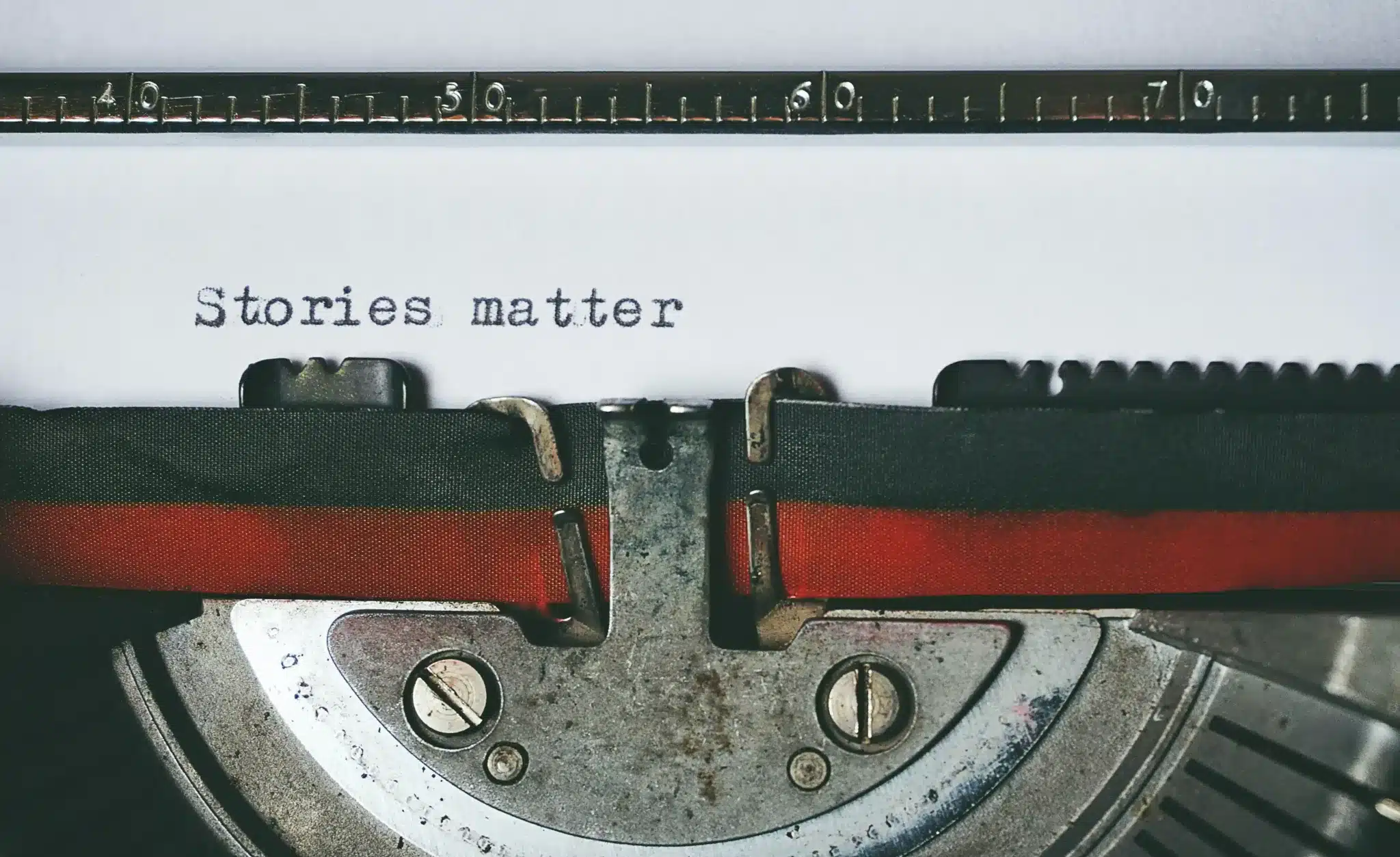TLDR
Learning how to write a book review is primarily about understanding your goals and desired audience. If you write book reviews as a hobby, having fun and expressing yourself are the only goals you need to have. Why bother stressing over metrics and audience targeting?
For those who want book reviewing to be monetized, the learning process is complicated. Us pro book reviewers have to think about what audience we want, how to write in a way that attracts that audience, where to place our reviews, how to get eyeballs on those reviews and how to convert those eyeballs to revenue.
What Makes a Good Book Review?
A good book review is a useful book review. The level of usefulness is in the eye of the beholder. Nonetheless, any useful book review should answer at least a few of these questions:
- Should anyone read the book?
- If yes, what kind of person would feel most satisfied for the amount of time and money required to read the book?
- Is the book potentially triggering or offensive to certain groups of people?
- Does the book require a certain reading level?
- Is the author controversial? Would any readers have concerns about supporting their work?
- Which aspects of the book are people least likely to enjoy?
Ultimately the goal is for people to have healthy expectations before reading the book. We don’t want them feeling misled or uninformed. Imagine someone who reads a book review, reads that book and then feels like they wasted time and money. It’s possible that the book reviewer missed essential points of analysis.
Consuming a book review takes minutes. Reading a book takes hours, and committing to a series can take dozens of hours. There are trillions of books, but readers have a limited amount of time and disposable income. A good book review should make readers feel like we are respecting their time, money and intellect. We are aligned in the mission to purge their lives of all time-wasting titles, leaving only the books that fill them with joy and wisdom.
Audience Targeting: The Subjective Idea of ‘Good’
Think of the above as an objective foundation for quality book reviews. Beyond this foundation, the idea of a “good” book review will vary wildly based on audience perception.
Do you have a target audience? If not, ruminate on how you like to produce book reviews. What kind of book reviews do you consume yourself? Would you enjoy producing something similar?
To further define and narrow an audience, ask these questions:
- Do you want the primary channel for your book reviews to be a website, a podcast or a video channel such as YouTube? You may try all of these mediums at once, but you will likely have more of an affinity for one.
- How long and in-depth do you want your book reviews to be?
- Do you want the reviews to be primarily about your personal opinion, or are you striving more for objective analysis and reporting?
- Do you want your book reviews to have star ratings? If so, you should define those star ratings. Otherwise people will default to their subjective understanding, and the meaning of the stars won’t be consistent.
- Do you have credentials you could show off to refine your audience? Here are a few examples: you’re an author yourself, you’re a professional writer or editor, you have worked in publishing, you’re a literary agent
- What is your scope? Literature only? Genre fiction only? Memoir only? Make sure the scope is clear for new readers. Be consistent.
- What will your primary revenue source be? If it’s affiliate commissions from people buying books, you’ll have to be strategic about where you place links and whether you can afford to do a lot of negative reviews.
- Is there a consistent tone or style you want for your book reviews? For example, some book reviewers write snarky, satirical summaries of the book where they speak as certain characters or act out a parody.
- Do you want to accept sponsored book reviews?
The Ideal Book Review Format
The ideal book review format is the one that targets your desired audience and leaves them satisfied. Regardless of where your book review is distributed, there are types of metrics you can look at to measure success:
- Views
- Click rate
- Average time spent on the piece of content
To use myself as an example, I created The Rauch Review with the goal of attracting an audience who wants in-depth book reviews that tend to address what is lacking in typical consumer and critic content. Our format dissects every aspect of what makes a book good. All of our reviews are longer than 1,000 words.
Within that broad audience are two groups:
- Literature lovers
- Political book readers
Right now I think we are attracting that broad audience because our average reading time is around two minutes. If our average reading time was well below one minute, I’d worry we are attracting people who only want short reviews. Of course, this result would be fine if we were writing short reviews.
Examples of Good Book Reviews
I use myself as an example here, so please forgive the ego. On the other hand, I suppose it would be strange if I advised people on book reviewing but didn’t think my own work provided valuable examples. To be fair, however, I included reviews from other creators. Feel free to comment or email us with book reviews you think are particularly good.
‘The Memory Police’ Explained: Loss of Memories, Character and Story — The Rauch Review (Long-Length Written Review on Website)
I often point to this review because I take the stance that this critically-acclaimed literary title is actually mediocre at best. This position has been intriguing for many readers. Regardless of whether people agree with me, I defend my position. I go in-depth and offer evidence.
When you naturally come to a unique or contrarian perspective, lean in. People will appreciate hearing a different take.
Old Man and the Sea [spoilers] — Murphy Napier (20-minute YouTube video)
The title emphasizes that the review will have spoilers. In the first minute, Napier clarifies that the review is primarily for people who have already read the book. She divided the video into sections that are useful for people who don’t have time for the entire 20 minutes.
As usual, Napier has clear lighting, room for book cover images, and a relevant background. Audio quality is perfect, allowing viewers to play the video and benefit without looking the whole time.
Review of ‘The Girls’ by Emma Cline — Not-So-Modern Girl (Medium-Length Written Review on Website)
Remember our point about credentials? It’s easy to see that the person who runs the website, Eleanor Jones, is a freelance writer. All people have to do is click on the About page in the navigation bar.
As for the review itself, Jones includes a trigger warning at an appropriate point. She ensures readers know what the book is about and who should consider reading it. The review length is perfect for people who want something meatier than a short consumer entry on a purchase page, but without the exhaustive coverage of something like The Rauch Review.
Tips for Reviewing Fiction vs. Nonfiction Books
At The Rauch Review, we break our book reviews into sections about each aspect of the book. For fiction vs. nonfiction books, many of these sections are actually the same. We believe the below areas of analysis apply to any book.
I’m not saying you should apply this exact format. We want you to be original. Also, we are working on a trademark for our format. I’m only showing you these areas so you can think about how to cover them in your own way.
These areas are important to keep in mind because they help reviewers remember often neglected aspects of a book. For example, some reviewers assume prose style is only worth analyzing for literary fiction where readers look forward to aesthetic prose. I disagree. Every author has a prose style. Even when reading a nonfiction textbook, a defined, clear prose style can boost engagement.
Aspects that Apply to Fiction and Nonfiction
- Summary: brief notes on what the book is about and what it’s similar to
- Audience and Genre: who should read the book?
- Compelling: Would the book’s target audience become emotionally invested?
- Clear: At a line level, can most people in the target audience understand the book without struggling? Does the structure make sense?
- Concise: How much fluff does the book have?
- Prose Style: How does the author write at the line level?
- Rhetoric: What arguments is the author trying to express?
- Cultural and/or Political Significance
- Critiquing the Critics: Do you want to express thoughts on what other reviewers have said?
- Book Aesthetic: Given what the book is, does the exterior make sense?
- Personal Opinion
Fiction and Creative Nonfiction Only
“Creative nonfiction” usually means memoir, although the term can also refer to personal essay collection books. Because fiction and creative nonfiction both tell stories, they have the same areas of analysis. “Nonfiction” usually has a different connotation, which is why we reserved that genre for a section below.
Here are the areas exclusive to fiction and creative nonfiction:
- Perspective: Was the narrator’s perspective clear? Did it mesh well with the story? Did the author do a good job handling perspective changes?
- Character Development
- Story: whether the story makes sense, use of plot devices, etc.
Creative Nonfiction and Nonfiction Only
“Nonfiction” normally refers to books that educate on an issue, argue a position or tell readers how to do something. These books often have some kind of narrative structure, but they don’t focus on storytelling and character development the way fiction and creative nonfiction titles do.
For both creative nonfiction and nonfiction, we include a section on “authenticity”: whether the author is believable. In the case of creative nonfiction, the author is telling stories that sometimes don’t have documentation or outspoken witnesses. Is the author effectively convincing you that most of these events probably happened and that they happened roughly as described?
With nonfiction, “authenticity” is more about whether you are convinced that the author believes their arguments and is making those arguments in good faith. Experience, research and credentials are weighted heavily.
Poetry Books: Fiction, Nonfiction or Its Own Thing?
We review poetry books as well. Right now we designate poetry books as their own category, neither inherently fiction nor nonfiction.
Nonetheless, your review of a poetry book could include analysis on whether readers would perceive content as fictional or nonfiction. As of my first draft of this article, we have reviewed two poetry books:
If I had to choose between giving these books a secondary category of fiction or nonfiction, I would choose nonfiction. “Everlasting Spring” gives people life and mental health advice with a theme of seasons. “Too Short to Box with God” muses on boxing and Black history. Neither book tells fictional stories. I’m sure we’ll eventually review a poetry book where I would say the secondary category is fiction.
Don’t think of genres as black and white or one-size-fits-all. If you do, your readers will miss out on analysis that could decide whether they feel good about the purchase/rental.
Common Mistakes to Avoid When Writing Book Reviews
There are many subjective elements in evaluating the quality of a book review, but I hope there are some missteps we can agree to avoid. I believe a book reviewing “mistake” is anything that risks developing unhealthy expectations. Generally speaking, don’t make promises and guarantees about how the book will make readers feel, whether it will change their lives, etc. Be careful with the use of superlative language such as “best.”
Beyond these general guidelines, here are some specific mistakes I’ve seen many times:
Common Mistake #1: Saying the Book is Perfect
Art is subjective. Perfection does not exist. I’m OK with people arguing that an author “perfectly” does something with one element of the book, but I draw the line at saying the overall book is perfect.
Even if you disagree with my logic, proclamations of perfection set unhealthy expectations for readers. If they perceive a single flaw in the book, they might view the reviewer as less credible. Ideas of perfection are a recipe for disappointment, both with the book and the reviewer.
Common Mistake #2: Only Summarizing the Book
A summary-only review is useless. I don’t even consider these pieces of content to be real book reviews. Readers can get a summary of the book from its many online purchase pages. When people browse in a physical bookstore, they can look at the back of the book, jacket or introduction section.
It’s OK for book reviews to have summary sections. We have that feature, and we think it’s important. Summaries on purchase pages and books tend to be promotional. Book review summaries have the opportunity to communicate with full transparency, to prioritize information over sales. For many readers, a summary is enough information for them to feel confident in a decision.
But what about the readers who want more than a summary, who need more information to make a decision? When a book review begins and ends with a summary, these readers are disappointed and frustrated. They were likely expecting more.
Common Mistake #3: Having Unclear Star Ratings
Nearly everyone in the developed world is familiar with the concept of five stars and ratings, but few people have the same mental model for what each star rating means. When reviewers display star ratings without explaining their meaning in context, readers default to their personal perceptions. When these perceptions don’t align with the intended definition, there’s a risk of confusion, mistrust and anger.
Going back to the perfection mistake, some readers assume five stars means the reviewer thinks the book is perfect. If you don’t share this definition, say so! Explain in the review itself or in a website page.
Personal Critiques in Book Reviews: How Much Is Appropriate?
Again, it comes down to audience, review distribution channel and book review philosophy. I come from the school of believing personal opinions in book reviews should be minimized and compartmentalized as much as possible. At The Rauch Review, you’ll notice our book reviews have a Personal Opinion section where I encourage writers to cut loose and say whatever is on their mind.
Of course, I know personal opinion plays a role in an entire review, regardless of section. Still, I’ve seen a lot of value in writers at least attempting to be objective through most of the review. There are so many helpful factual statements reviewers can make about a book.
Again, there is the matter of usefulness. Is it useful for most of your review to be about what you liked on a personal level? It depends, and this crossroads is where the issues of medium and length become important.
Text vs. Audio-Only vs. Video — and Length
Book review audiences have different appetites for personal critique. These appetites tend to vary based on the medium of the review (text vs. audio only vs. video) and length of the review.
Editorial Note: I know the article is about how to write a book review, and “write” makes people think primarily of text-only. In this case, I view audio and video under the broad umbrella of “writing” because creators have to write scripts or at least write notes and outlines. Regardless of the final product, all book reviewers have to write something.
Text is the medium where readers usually want the least amount of personal critique. Text review readers are more likely to be scanning for information. When text readers arrive at a book review website through search engines, they haven’t formed a relationship with the book reviewer. People usually don’t follow specific critics on book review platforms such as Goodreads.
Audio-only is a more personal relationship. Compared to text-only, listeners of a book review podcast will likely want the host to spend a fair amount of time on personal critique.
Video is the most intimate audience relationship. People are watching facial expressions and listening to tone of voice while they absorb personal opinions on books.
For all of these mediums, length and personal critique time correlate. With our long text-only reviews, the length and section format allow writers plenty of space to vent emotions and opinions. Longer podcast episodes and video allow more time to share personal perceptions and experiences of the book.
There’s also the matter of notoriety and reputation. The more readers trust a reviewer’s personal critique as gospel, the more they’ll want to hear that type of content. For some people, knowing Oprah likes a book is enough reason to buy.
Where to Publish Your Book Review
To decide what your primary publishing platform should be, weight these factors:
- Affinity for a medium (text, audio-only or video)
- Affinity for a channel (TikTok, YouTube, website, newsletter, etc.)
- Available time
- Budget
- Goal (professional/monetized vs. hobby)
- Skillset (ability to make your own website, marketing, etc.)
Based on an analysis of these factors, choose a primary channel and consider secondary channels. To help you decide, here’s a list of all the most popular places to publish your book review:
- A Website You Own
- A Text Publishing Platform Such as Medium or Substack
- Book-Specific Forums and Consumer Sites With Book Review Sections: Goodreads, Amazon, Barnes & Noble
- Forum-Style Social Media Sites With Book Review Communities: Reddit, Quora
- Long-Form Video Platforms: YouTube, Rumble
- Short-Form Video Social Media Platforms: Instagram, TikTok
For hobbyists who enjoy writing, stick with book review platforms such as Goodreads. This approach is free, fast and anonymous for those who don’t want their real name out there.
Professional writers with budget, time, marketing skills and profitability ambition should try a blog or something like The Rauch Review. With this approach, reviewers can run ads on websites they own.
If you’re a natural at video content and have already found yourself a following for another topic, add book reviews to your mix. Or try launching another video channel specifically for book reviews.
Don’t Forget to Have Fun
As someone who now reviews books as part of a business, I sometimes remind myself that having fun is an important goal. Book reviews are a great excuse to read, both for pleasure and enlightenment. Even when you end up reading a book you absolutely hate, have fun ranting about how bad it is. Remember that learning how to write a book review — while potentially difficult — can be fun, too.
Get recommendations on hidden gems from emerging authors, as well as lesser-known titles from literary legends.






